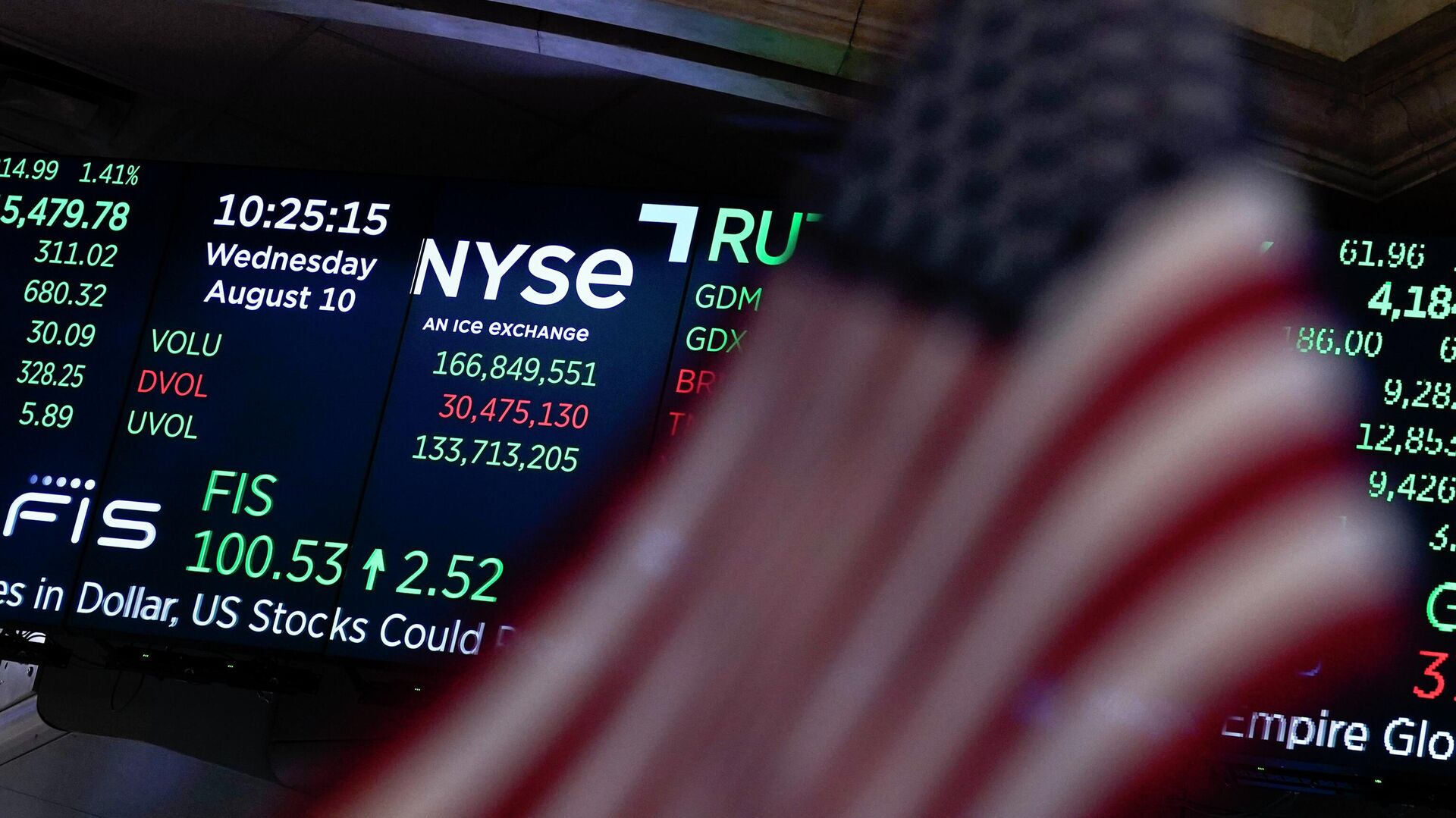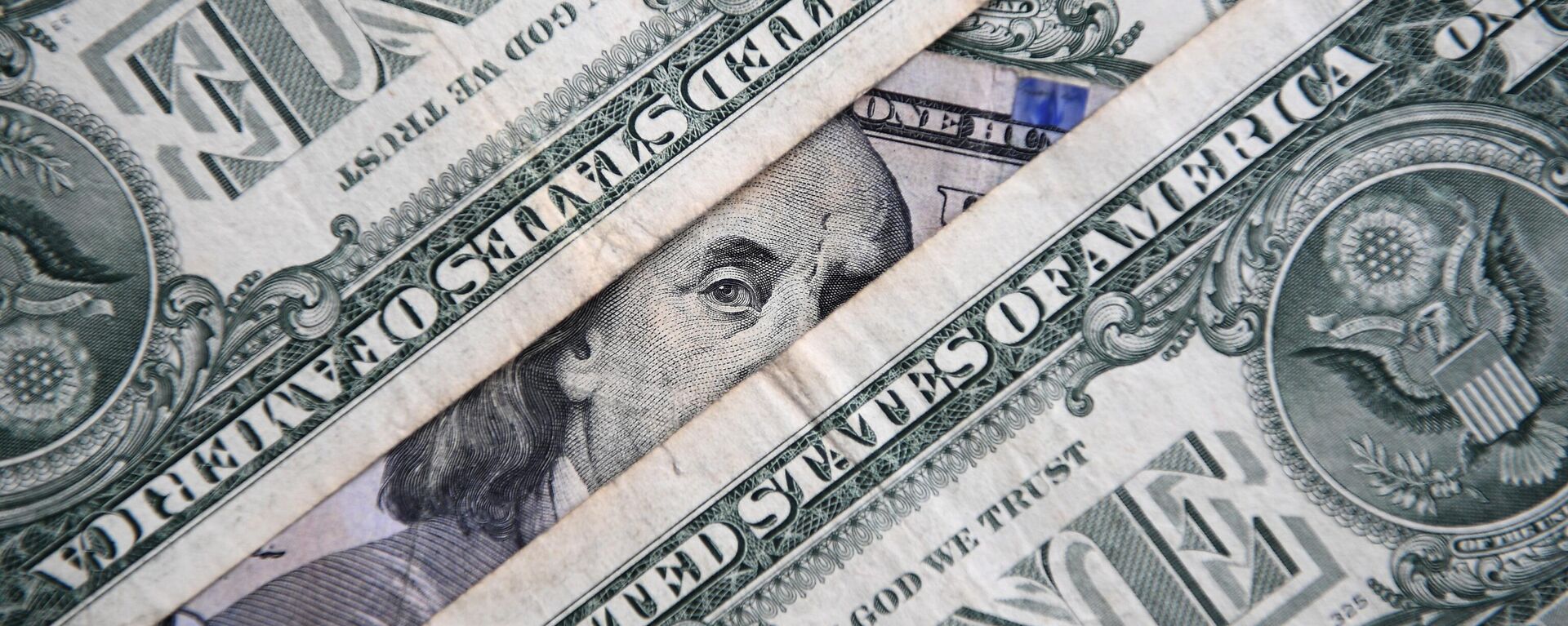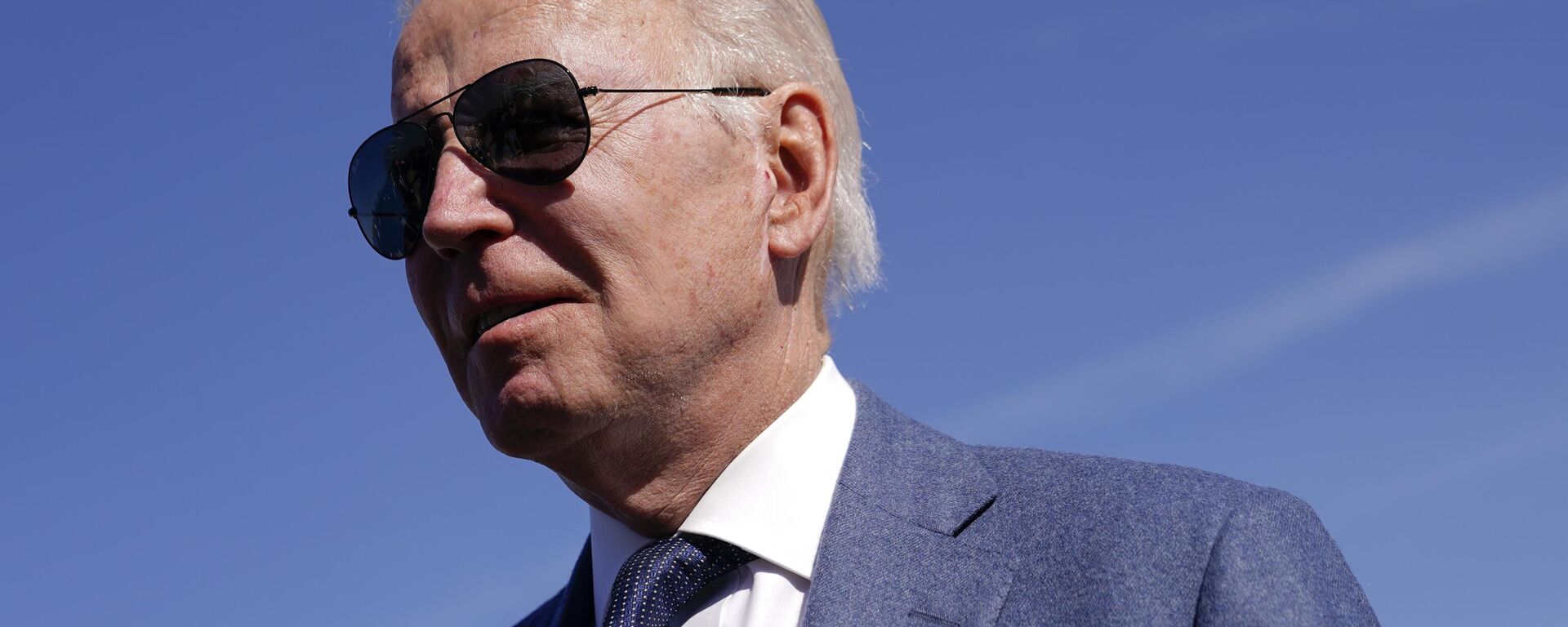https://sputnikglobe.com/20230611/does-sp-500-rally-herald-bull-market-or-stock-buyback-1111066010.html
Does S&P 500 Rally Herald Bull Market or Stock Buyback?
Does S&P 500 Rally Herald Bull Market or Stock Buyback?
Sputnik International
The S&P 500 closed over 20% above its lows from October 2022 last Thursday, triggering the question whether it is a harbinger of a bull market. One should take the latest development with a grain of salt, US economist Mark Frost told Sputnik's Final Countdown podcast.
2023-06-11T15:01+0000
2023-06-11T15:01+0000
2023-06-11T15:01+0000
analysis
society
americans
federal reserve
standard & poor (s&p)
economy
opinion
us
inflation
recession
https://cdn1.img.sputnikglobe.com/img/07e6/08/19/1100000239_0:161:3071:1888_1920x0_80_0_0_27bc8670b1aa882c05b3018129104091.jpg
The 20% threshold passed by the S&P 500 earlier this week has prompted a heated debate over whether happy days are here again following months of gloomy prognoses of a looming recession and credit crunch. The Federal Reserve has been aggressively raising interest rates to curb inflation, thus increasing borrowing costs and slowing the economy down. The recent unemployment figures sent mixed signals, while massive layoffs by leading tech companies spelled trouble for the market. Even though some financial experts warn that the bull market impact is short-lived, others insist that stocks will go higher. Should one believe these optimists?As per Frost, the general public invests to get a return that exceeds inflation. That's the entire purpose of investing, he underscored.As per Frost, inflation in the US is a self-inflicted problem that is eating away at the people's income. At the same time, corporations are now sitting on liquidity which is sometimes used to stock "buybacks." Usually, companies sell stock to investors in order to raise capital. However, when companies have extra capital they go to the secondary market and buy their stock back. Sometimes they are doing so to raise the value of their shares. Sometimes, they want to create an atmosphere of optimism. According to some estimates, US companies spent a whopping $1 trillion for their own stock buybacks in 2022.For more of Mark Frost's exclusive analysis on the US economy, check out the full episode of The Final Countdown podcast.
https://sputnikglobe.com/20230529/why-debt-ceiling-deal-doesnt-mean-us-economy-out-of-woods-1110778935.html
https://sputnikglobe.com/20230608/michael-hudson-biden-admin-waging-class-war-against-working-americans-1110983345.html
Sputnik International
feedback@sputniknews.com
+74956456601
MIA „Rossiya Segodnya“
2023
News
en_EN
Sputnik International
feedback@sputniknews.com
+74956456601
MIA „Rossiya Segodnya“
Sputnik International
feedback@sputniknews.com
+74956456601
MIA „Rossiya Segodnya“
s&p 500 bull market, s&p 500 passed threshold, s&p 500 rally, us inflation, us recession, us banking crisis, stock buybacks by us corporations, us federal reserve, money printing
s&p 500 bull market, s&p 500 passed threshold, s&p 500 rally, us inflation, us recession, us banking crisis, stock buybacks by us corporations, us federal reserve, money printing
Does S&P 500 Rally Herald Bull Market or Stock Buyback?
The S&P 500 closed over 20% above its lows from October 2022 last Thursday, triggering the question of whether it is a harbinger of a bull market. However, one should take the latest development with a grain of salt, US economist Mark Frost told Sputnik's Final Countdown podcast.
The 20% threshold passed by the S&P 500 earlier this week has prompted a heated debate over whether happy days are here again following months of
gloomy prognoses of a looming recession and credit crunch.
The Federal Reserve has been aggressively raising interest rates to curb inflation, thus increasing borrowing costs and
slowing the economy down. The recent unemployment figures sent mixed signals, while massive layoffs by leading tech companies spelled trouble for the market. Even though some financial experts warn that the bull market impact is short-lived, others insist that stocks will go higher. Should one believe these optimists?
"No, because I don't know who wrote that, but whoever wrote that doesn't have his own hard-earned money in the market," Mark Frost, an economist, professor, and consultant, told Sputnik. "You know, it might be worth noting, and sometimes I think we missed the basics, let's just ask our audience just a quick question. Why do people invest?"
As per Frost, the general public invests to get a return that exceeds inflation. That's the entire purpose of investing, he underscored.
"So if you go buy an index fund, a Dow or an S&P or NASDAQ, whatever, you can get a dollar and whatever, what you're holding is that you're going to outpace inflation because that's the purpose of investing," Frost said. "If you are a widow and you have $100,000 and you have to live on that and you're getting a 4% return and inflation's 10% not only are you not making 4%, you're losing 6% every single year. And we economists call that 'money illusion' where we feel like we're making more money. But in reality, we're actually making less money because the price schedule has blown up. (…) If you rewrite the way that they compute inflation and you make the basket of goods and you don't say, 'Oh, well, gas is volatile, so we're not going to give it as much weight in the average as the other things'. But if you just go look at what people actually buy that make say, under $50,000 a year, what they actually buy, inflation is pretty severe right now for them. I mean, they've taken a hit of a good 20% to 25% in their actual disposable income."
As per Frost, inflation in the US is
a self-inflicted problem that is eating away at the people's income. At the same time, corporations are now sitting on liquidity which is sometimes used to stock "buybacks."
Usually, companies sell stock to investors in order to raise capital. However, when companies have extra capital they go to the secondary market and buy their stock back. Sometimes they are doing so to raise the value of their shares. Sometimes, they want to create an atmosphere of optimism. According to some estimates, US companies spent a whopping $1 trillion for their own stock buybacks in 2022.
"There's not enough super-rich people to spend money to stimulate th economy sufficiently," the economist continued. "So the Fed creates. They print money basically out of thin air. And they flood the banking community with that liquidity and banks start giving out loans. And when they want to turn that off, they do the opposite. And what it ends up doing is it makes people pay for the excesses of the past. (…) Right now corporations are in a capital flood. They have more capital right now than they know what to do with. And all they're going to do if you flood them with more capital is they're just going to buy back their own stock. They're going to do things from an M&A [merger and acquisitions] perspective that ordinarily they would not be able to do. And that's what I think is happening right now."
For more of Mark Frost's exclusive analysis on the US economy, check out the full episode of The Final Countdown podcast. 



